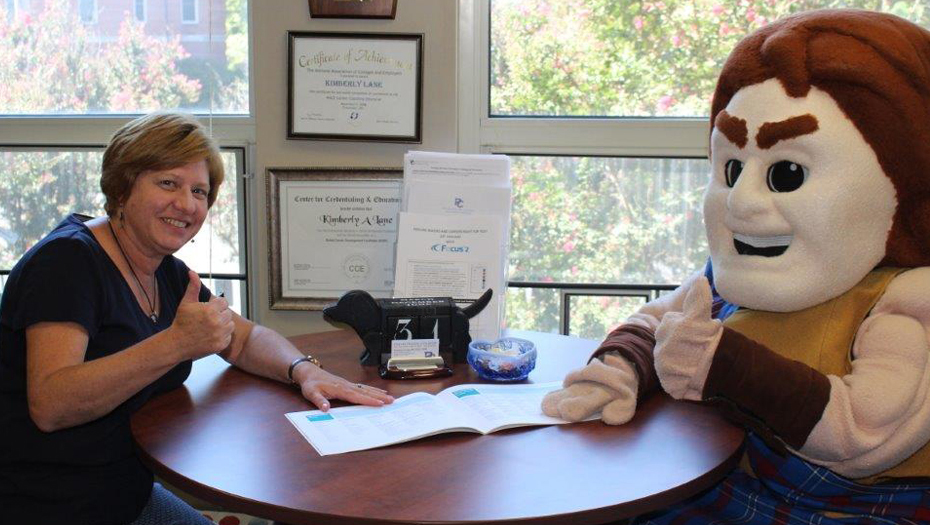
Graduate School Preparation
Is Graduate School for you?
There are many reasons to consider pursuing advanced education after finishing your undergraduate degree. It may be a requirement of a profession such as medicine or clinical psychology or it may advance your career and increase your marketability.
Before committing to graduate school, it’s recommended that you talk to Career Development staff and professors. Graduate programs differ significantly from undergraduate programs in that they aim for specificity rather than broad application. So it is imperative that you find programs that closely match your goals and interests.
Grad School: Should You Go?
Graduate School: The Application Process
Begin by asking yourself:
» Why do I want to pursue graduate school?
» What goals do I hope to accomplish by attending graduate school?
» Does my career field of interest REQUIRE graduate school OR work experience?
» Am I good candidate (scholar) to conduct graduate level work?
» Is it the right time to pursue an advanced degree? Would later be better?
» Am I willing to invest the time AND financial resources to attain an advanced degree?
Research Programs
Look at the curriculum, the faculty research interests, and alumni outcomes from a specific graduate program to match your goals and interests.
Ask questions:
» What characteristics distinguish this program from others in the same field?
» How many faculty members does the department have and what are their specialties and research interests?
» What is the relative importance of admissions test scores, undergraduate grades, and recommendations?
» What types of financial aid are offered? Are assistantships or fellowships available?
» Where are the graduates employed? Are they doing the work you want to be doing?
Here are a few websites to research graduate programs:
Graduate School Application Timeline
Junior Year: Get the ball rolling**
- Decide which fields interest you and then start looking for programs and schools that match your interests. Visit the campus if possible.
- Investigate what kind of financial aid options will be available to you including grants, loans, and assistantships.
- Prepare for entrance exams and schedule them.
- Request application materials from prospective graduate schools.
- Keep your grades up! Take courses that are relevant to your field of study.
- Consider who you would ask to be a reference or to write letters of recommendation. Discuss your goals with your references. Keep in contact by email or phone.
- Meet with an Academic Advisor to discuss your graduate study goals
**If you plan to apply to medical school, please note that acceptance is very competitive. Due to rolling admissions, many schools will begin reviewing applications as soon as they are received beginning as early as June for the following year. Therefore, your letters of recommendations from faculty and a résumé review should be completed in the spring semester of your junior year.
Summer before Senior Year
- Complete an internship and/or research project. Volunteer experiences are beneficial too.
- Read information from each school and review each application carefully. Note deadlines and requirements. Choose which ones you are going to apply to.
- Fill out your applications and begin working on personal statements.
- Take any entrance exams that are required to apply to each school.
- Schedule an appointment or interview at potential graduate schools, if necessary.
- Update your resume.
Senior Year (fall): It’s go time!
- Obtain any last minute application materials from schools you have selected. Identify deadlines and requirements. Line up references.
- Request your transcripts to be sent to the graduate schools that you are applying to.
- Evaluate each school’s financial aid processes and pursue financial assistance opportunities.
- Evaluate the schools and determine which ones you will apply to. Visit the schools; meet with a counselor or graduate student in your prospective program.
- Submit application materials before the deadline. Check with the schools to make sure they received all of your information on time.
Senior Year (spring): The waiting game and starting the next chapter!
- Review acceptance letters and notify each school of your decisions to attend or decline acceptance.
- Inform your references of your progress and decision.
- Fill out the FAFSA (Free Application for Federal Student Aid). Respond to financial aid opportunities that have been offered to you.
- Send your final transcripts after graduation.
- Finalize enrollment and attend orientation sessions and consider residence options.
